Today, every product owner or anyone out there can agree that there is a humongous number of apps that were futuristic or just ideas of fantasy some time ago. Alongside this, the growth of technical feasibility, superior programming languages, and modern development tools have helped us to achieve super mobile apps.
As a result of more technical feasibility, product owners need to know how the tech stacks present today have enabled applications to become maintainable, scalable, and committed to all the functional requirements or the business value they were created for. Thus, it will allow them to apply this knowledge in their respective projects.
What Is a Cross-Platform Framework?
Before jumping to the core section of the article, let’s briefly capture the idea of what cross-platform app development frameworks and technologies are so further navigation would be smooth and effortless.
Like building a car requires special equipment, creating an app involves specific instruments as well. So basically, a framework refers to a platform that provides a combination of tools to deliver a software solution.
There is an important pointer for the choice of any framework as it is highly dependent on the choice of the development approach. Likewise, the choice of an approach is also based on requirements, the needs of target users, team expertise, and capacity.
The main mobile development approaches are as follows:
- Native App Development
- Cross-Platform Development
- Hybrid App Development
- Rapid Mobile App Development
- Progressive Web App Development
The most preferable approach is native app development. However, for some apps, other approaches are more reasonable, and that’s why today we focus on the frameworks that support a cross-platform development approach.
In essence, a mobile cross-platform framework allows for developing an app that will work seamlessly on both iOS and Android. It enables the team to easily use a range of programming languages and build mobile apps that are rich in features and functionality. These apps deliver a number of advantages that companies should be aware of.
Choosing a Winning App Development Strategy
Watch our webinar to uncover effective mobile development approaches and launch your app.
Benefits of Using Cross-Platform Development Frameworks
To provide you with a full picture of why businesses often choose a cross-platform approach and frameworks to deliver their solutions, let’s go through their benefits. We’re not going to dive deep into each one since all of them are interconnected and derive from the essence of the approach itself.
Building a mobile app for two platforms at once allows companies to:
- Save development costs and achieve effective budget allocation
- Create and lunch a solution faster
- Provide a native-like user experience
- Reach a wider audience with less effort
- Update and maintain the app easier and at a lower cost
So now, as you see the reasons why the approach became so popular, we’ll take a look at the top frameworks that are now commonly used by mobile app developers.
Lack of Developers
Find out how to deal with the lack of IT talents without compromising project delivery.
Popular Cross-Platform Frameworks
There is a great number of tools that can help streamline the implementation of cross-platform solutions. However, below, we talk about the most efficient and widespread ones that currently prevail in the market of technologies.
React Native
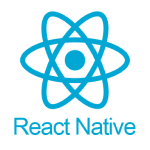
React Native is another widely used open-source app building tool, based on JavaScript. Originating in Facebook, it was developed to make apps that would run on multiple platforms, such as Android and iOS, yet, the user interface is native on any OS. Some examples are the likes of mobile apps for Instagram, Facebook, and Skype.
As a plus, this framework has various tools for debugging and packaging that conserve app development time. It also has a highly functional approach as regards user interfaces with the ability for developers to see how the functions of source code work in real time on their screens. As a result, this simplifies making a user interface and achieving a flawless user experience.
Advantages of React Native include:
- High performance and speed like native apps
- Compatible with 3rd-party plugins
- Live reloading feature
- Fluid and well-responsive UI
- Good development environment
- Not prone to bugs
- Speedy debugging of code
Flutter

Created by Google, Flutter is another powerful open-source UI SDK. Using a single codebase, developers can build in minutes cross-platform mobile apps that deliver native interface and performance.
Flutter relies on the Dart programming language, layered architecture, and a rich set of customizable widgets to ensure fast rendering of components and create expressive designs.
Compared to other mobile development technologies, Flutter is relatively new, but it keeps gaining popularity. Its Stateful Hot Reload helps developers easily experiment, add features, and fix bugs while the framework rebuilds the widget to display the changes.
As a result, it provides fast development, which is one of the reasons why this platform is so loved.
Advantages of Flutter:
- Performance similar to native apps
- Custom built-in widgets
- Own rendering engine
- Reduced time for code development
- Expressive and flexible UI
- Possible to go beyond mobile
Titanium

Titanium SDK, through the use of JavaScript, empowers developers to build cross-platform mobile applications that bridge native, hybrid, and web with a single code base. Firstly, as an open-source solution with thousands of APIs, Titanium is very instrumental in delivering a rapt user experience faster if compared to the orthodox native platform.
Similarly, according to Wikipedia, an estimated 10% of all mobile phones globally use an app developed with Titanium. Its community of developers contributes frequently to making this tool more enhanced to serve cross-platform development.
Advantageously, independent developers, software vendors, and other partners can create modules for extending the Titanium SDK with mobile interface controls, leverage native platform APIs, and access 3rd party services.
Advantages of Titanium:
- It works across all platforms
- Availability of over 5,000 APIs
- Live reloading feature
- Available client-side marketplace modules and cloud-based services
- It has very large community support
Xamarin
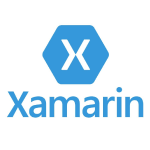
Xamarin can be considered as one of the main and highly-rated tech used to build cross-platform apps. Notably, developers have the alternative of writing or rewriting the code in other languages such as C, C#, and .Net frameworks, making it a match and fit for products and solutions made by Microsoft.
Lastly, Xamarin also enhances a UI toolkit for cross-platforming that compiles codes, irrespective of the native interface.
Other Xamarin’s advantages include:
- Fewer bugs
- High performance
- Support for MVC and MVVM patterns of design
- The same user interface as native
- Automatic test by TestCloud
- Common app logic
- Self component store
- Large community support
What are Your Mobile Development Challenges?
Apache Cordova
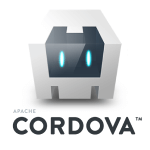
This technology was rebranded as PhoneGap after being owned by Adobe Systems in 2011. It is now known as an open-source software called Apache Cordova. Practically, it is a hybrid development framework for mobile applications, but it also works as a web-based framework.
Combining Apache Cordova with likewise technologies like JavaScript, CSS, and HTML are used for for building cross-platform applications. However, it allows app developers to use numerous other libraries and frameworks, including Knockout.js, AngularJS, and jQuery.
Apache Cordova is compatible with IDEs that support any of the toolsets of iOS and Android like Xcode or Android Studio. Unfortunately, the resulting apps are slower when processing large data sets and not a good fit for using third-party libraries for access to graphics, compared to native apps. Also, there are some native device APIs that are not yet supported by Apache Cordova.
Advantages of Apache Cordova:
- Effective for backend
- Open to HTML5, CSS3, and JavaScript developers
- Works on all platforms
Sencha Touch

Sencha Touch is the most effective mobile development framework that combines the features of multiple technologies like ExtJS, JavaScript, and HTML. Moreover, it’s ideal for developing dynamic applications that can work on Android, iOS, Kindle Fire, and the rest.
Many developers recommend Sencha Touch for very complex hybrid apps, especially with the need for an interactive UI. Additionally, it is compatible with many other popular IDEs directly or sometimes with the use of a plugin.
Advantages of Sencha Touch:
- Fast and responsive hardware acceleration
- Lots of widgets and easy-to-use APIs
- Effective data management
- Reliable security
- Works on multi-platforms
Ionic
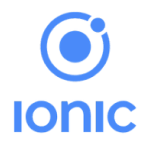
Based on AngularJS and Cordova, Ionic, like the others, is an open-source and 100% free framework. It is characterized by the ability to enable hybrid apps to not only look but work like native apps. It is simple to learn and write, and it is well supported by a large developer community.
In reality, Ionic helps web developers in building, testing, and deploying cross-platform mobile apps pretty fast. Similarly, it combines JavaScript, CSS with HTML and several plugins and extensions from third parties. However, there is a strong dependence on plugins for advanced features.
Advantages of Ionic are:
- Fast development and reusable code
- Supports robust development
- Availability of numerous plugins
Are you planning to build an app?
Node.JS
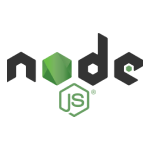
This is an open-source, cross-platform development environment that is widely used for building mobile apps. It’s based on the V8 JavaScript engine and allows for delivering highly efficient, scalable, and responsive solutions. Node.JS has a range of JavaScript modules that also support the development of web applications and enable the creation of server sides of the apps.
Advantages of Node.JS are:
- Large community support
- High speed and app performance
- Great choice of free tools
- The fastest way to build an MVP
Kotlin Multiplatform Mobile
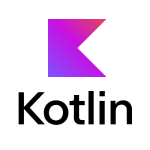
Kotlin Multiplatform is one of the youngest frameworks in our today’s list. Yet, it’s already gaining traction since it offers a lot of efficient tools to develop a mobile app for iOS and Android devices. While working on the application, developers can share the same code between the two platforms.
At the same time, the framework allows for writing platform-specific parts of the code when it’s needed, like in the case of some APIs and native UI components.
Advantages of Kotlin Multiplatform are:
- Regularly updated documentation
- Use of the latest UI tools
- Quick access to Android and iOS SDKs
Solar 2D

Based on the lightweight and fast scripting language Lua, Solar 2D offers multiple opportunities to build applications that will perform well on iOS and Android platforms on both mobile and tablet devices. Previously known as Corona SDK, this cross-platform framework suits well for developing games and 2D apps.
Advantages of Corona SDK are:
- Instant-update simulator to see real-time results
- A variety of plugins for in-app advertising, analytics, media, etc.
- Support provided by the engineering team via a community Slack channel or email
Learn more about our Mobile Development Services
Tips to Choose the Best Cross-Platform App Development Framework
Now that we’ve covered a variety of technologies and tools that help deliver robust applications, it’s time to decide which better fit your project.
Choosing the right mobile app framework might be puzzling, but an experienced team of developers will always provide you with guidance on this tricky path.
However, before approaching your in-house team or outsourcing your app development, you should define the key aspects that impact the potential choice. No matter what resources you will draw to implement your project, the following details will help you make an informed decision together with your team.
Carefully consider the steps and factors listed below that are related to your future mobile app:
- Determine clearly your project goals since it all starts here
- Analyze app requirements, this will save you costs in the future
- Think about the app’s scalability
- Find out if the framework can accommodate the required level of security
- If your app is going to be of high complexity, make sure that development tools allow for it
- Define whether UI is critical for your app and if you need its easy customization
- Learn about the framework maturity and the challenges it can pose
- Consider your team’s expertise
Cross-Platform Mobile Tech Stack at Velvetech
Having gone a long way in both cross-platform and native app development, we apply tried and tested tools to accelerate the adoption of mobile solutions and help companies boost their growth.
Depending on the preferences and requirements explored during the discovery sessions, our team recommends the optimal mobile application technology to use.
From our experience, going for native app development would ensure the best app performance and efficiency. However, we majorly support the projects requiring a cross-platform approach with React Native and Xamarin SDKs, as well as Flutter and Titanium frameworks when necessary.
Read about the Development of a Mobile App with Titanium for an Energy Company
The Way Forward
There is always a need to improve user engagement and satisfaction as the mobile app market constantly expands, and as it further provides smart mobile solutions. It is a good insight for product owners to take advantage of the current mobile app development stacks and the rewards they offer.
The headway into creating a top-notch mobile app is to select the most complementing tech stack. It is equally important that an intelligent choice will influence the stability and usability of any app. After all said and done, from all the trending technologies you should pick a development stack that suits the aim and purpose of your project perfectly. As a result, this will give you dominance and a good market share.
Are you in the need of a worthy mobile development vendor to make you an ideal app for your business? Our team of business analysts and developers at Velvetech is always up to the task. We have a highly competent team that covers a full product development cycle from research and planning to delivery and maintenance. Contact us today to discuss your app.











